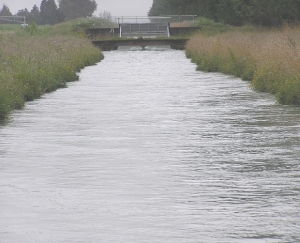“Dairying that goes in from now on has to be high performance, top of the management practice if we are going to move to what needs to be achieved in water quality,” Curtis told Dairy News.
“With consents not being addressed in the report so they are of longer duration without explicit right of renewal, it is creating an unnecessary barrier to investment.
“And it’s people not understanding how the banks work. In the past the banks haven’t really paid much attention to this sort of stuff, but they have all woken up to what’s going on in the water quality space.
“All this water quality stuff will require investments and if people are going to invest in good quality kit that’s pushing the irrigation side of things then you need longer-duration consents; the water infrastructure is going to need a longer consent still.
“If you are building infrastructure that lasts 70-100 years, it should be consented for that sort of time frame. That will allow easier financial investment and open up more opportunity.
“If people are going to invest on-farm, then having explicit right of renewal makes sense as well.”
Curtis says a framework needs to allow for long-term thinking; at the moment is a “bit confused”. He recently travelled to UK and Israel with Australians from the irrigation industry.
“It allowed me to compare what’s happened in Australia, UK and Israel. We are the only country in the world that doesn’t have subsidies. Australia doesn’t have subsidies as such, but the Government is putting a lot of money into infrastructure upgrades – billions of dollars.
“Australians have property rights for water, UK is moving towards having property rights, in Israel they have a permit which is perpetual although the water in Israel is all owned by the Government. They can revoke a permit but that has compensation associated with it.
“Look at what’s happening overseas and what’s happening in New Zealand and you think we really should be creating equal playing fields for our farmers considering agricultural exporting is what the country runs on.”
Curtis says IrrigationNZ spent a year collaborating in good faith to reach an agreement on how water quantity and quality is best managed in New Zealand. A package that provided a sound platform to support sustainable future growth had been produced.
“The report did a lot of footwork and landed in a useful space then there was a lot of back-and-forth at the last minute. It has ended up with a split recommendation.”
















